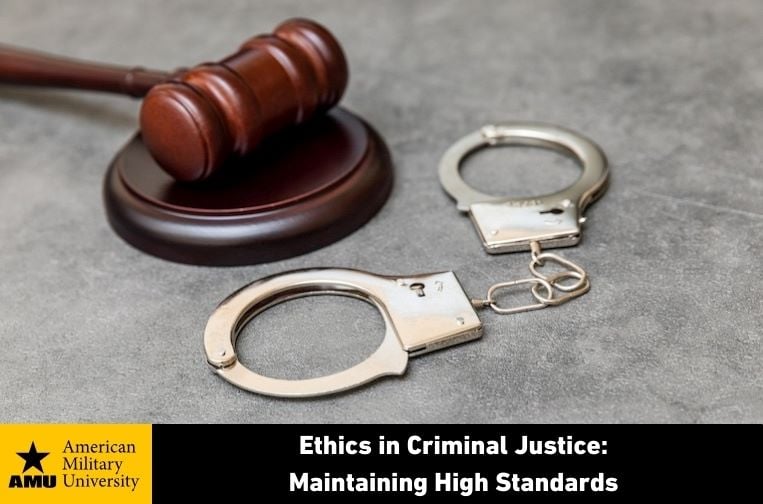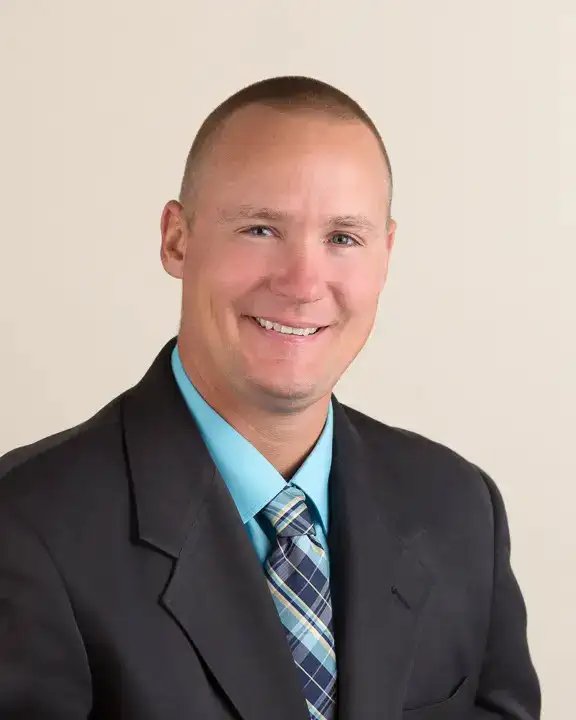By Dr. Jarrod Sadulski | 01/13/2025

Maintaining ethics in criminal justice is crucial because law enforcement officers and criminal justice professionals have so much responsibility. They often work with limited supervision, so maintaining high ethical standards at all times is essential.
Criminal justice professionals are held to high ethical standards due to the critical nature of their roles. They have the responsibility to enforce laws, take people into custody for violating laws, and testify under oath in court.
Law enforcement professionals maintain public trust through ethical conduct. If they breach ethics, that erodes public trust.
Ethical breaches by a small number of police officers or criminal justice professionals have created mistrust across the entire criminal justice profession. Since public perception of the criminal justice system can be adversely impacted by the actions of a few people, accountability in criminal justice needs to be maintained.
Leaders in the criminal justice system especially have a responsibility to ensure that high ethical principles are upheld among their peers and subordinates. They must also hold anyone who violate the law or agency policies accountable.
Criminal justice professionals have the right to due process when there is an allegation of misconduct or violation of the law. Nonetheless, leaders should thoroughly investigate allegations to ensure that ethics were upheld.
Leaders also have an important responsibility to create an ethical framework with moral principles within the organization. Leaders should guide by example, which helps to create meaningful and ethical behavior.
Ensuring Ethics in Law Enforcement
Society and its citizens depend on the police to serve with integrity and impartiality. Law enforcement and other public servants should treat the public with respect and fairness while they uphold the law.
Law enforcement officers and criminal justice professionals should be aware of the ethical standards for which they are accountable. Ethical behavior occurs because employees in the criminal justice system know what is acceptable and what is not in the criminal justice field.
Leaders have an important responsibility to ensure that there is no ambiguity in regard to how to behave in situations that test their awareness of ethical issues. Police officers directly affect the well-being of the public, and ethical considerations should be at the forefront of every officer's mind. Treating people with human dignity and maintaining proper ethical standards is what we expect from our criminal justice system.
In my law enforcement career that has spanned three different agencies, I have seen firsthand the influence of leadership within criminal justice in regards to ethical issues. I have worked with some supervisors who did not behave ethically, which resulted in their subordinates being less inclined to maintain ethical standards.
On the other hand, I have worked with incredible supervisors who maintained their integrity and principles. These types of leaders promoted a sense of accountability and consistently enforced agency policies and procedures.
Criminal justice professionals typically work in complex situations. Ethical dilemmas can occur occasionally, especially within law enforcement agencies, the court system, and other criminal justice systems.
Quick decision making is essential in the criminal justice field, especially in volatile situations. Officers may only have seconds to react to a violent offender and usually react instinctively to protect themselves and others. A basic grounding in ethical conduct, however, can be effective in helping police officers to prevent a situation from escalating.
Ethics in Criminal Justice and Corrections
Corrections is another aspect of the criminal justice system where ethics have critical importance. Correctional officers are responsible for inmate safety and care. Honoring individual rights and acting with respect and integrity toward inmates is vital.
Ethical behavior in corrections ensures that corrections officers respect prisoners’ basic human rights. Ethical behavior among correctional professionals fosters meaningful rehabilitation, especially considering the fact that most prison inmates will be eventually released back into society. Corrections professionals can also model proper behavior by maintaining ethical principles, which will help to lower recidivism rates.
Ethics Ensure Fairness and Justice
When dealing with citizens that commit crimes, ethics can ensure fairness and justice. In my law enforcement career, I have found that justice and ethics go hand in hand.
Law enforcement officers must understand the importance of professional conduct and have the knowledge in how to properly investigate crimes and pursue justice. Officers with this type of education receive less complaints and are better able to navigate complex ethical situations.
Professional conduct in the criminal justice field is especially important in use-of-force situations. In police work, the prison system, and even the court system, use-of-force incidents occur when someone acts violently and tries to injure or kill others. Law enforcement officers who practice ethical behavior will ensure that only the appropriate amount of force is used.
While people often develop ethics and morals based on their upbringing, education can also have a positive impact on ethical conduct. Students can gain insight into how to protect citizens and solve crimes while avoiding misconduct and corruption.
A new trend in police work is to hold officers accountable if they observe misconduct by another officer and fail to report it. This strategy helps to increase professionalism and public trust.
Prosecutors and Ethics
Another aspect of the criminal justice system where ethics are important is prosecutors. Prosecutors have a responsibility to avoid conflicts of interest, ensure fairness and due process, and avoid abuses of their discretionary power.
Ethical standards in the entire system help ensure that citizens are treated fairly and are not abused by people in a position of power. When a criminal justice organization maintains ethical standards, the public is more likely to trust them and be cooperative. This cooperation can lead to criminal justice professionals and citizens working together to stop crimes from occurring.
Criminal Justice Degrees at American Military University
A degree in criminal justice provides students seeking opportunities in the criminal justice field with the foundational knowledge and skills needed to help protect and serve their communities. For adult learners, American Military University (AMU) offers an online associate of arts in criminal justice, an online bachelor of arts in criminal justice, an online bachelor of science in criminal justice, and an online master of arts degree in criminal justice.
These degree programs are tailored to meet students’ educational needs and professional interests. The courses cover a wide range of topics, including evidence and procedures, intercultural communication, ethics in criminal justice, criminal law, and criminal profiling. Other courses include crime analysis, constitutional law, and police administration. These courses are taught by expert faculty with considerable experience in the criminal justice and corrections fields.
For more information about these degree programs, visit our criminal justice degree program page.
Note: These criminal justice programs are not designed to meet the educational requirements for professional licensure or certification in any state. These programs have not been approved by any state professional licensing body and do not lead to any state-issued professional license.

Dr. Jarrod Sadulski is an associate professor in the School of Security and Global Studies and has over 20 years in the field of criminal justice. He holds a bachelor’s degree in criminal justice from Thomas Edison State College, a master’s degree in criminal justice from American Military University, and a Ph.D. in criminal justice from Northcentral University.
His expertise includes training on countering human trafficking, maritime security, mitigating organized crime, and narcotics trafficking trends in Latin America. Jarrod has also testified to both the U.S. Congress and U.S. Senate on human trafficking and child exploitation. He has been recognized by the U.S. Senate as an expert in human trafficking.
Jarrod frequently conducts in-country research and consultant work in Central and South America on human trafficking and current trends in narcotics trafficking. Also, he has a background in business development.

